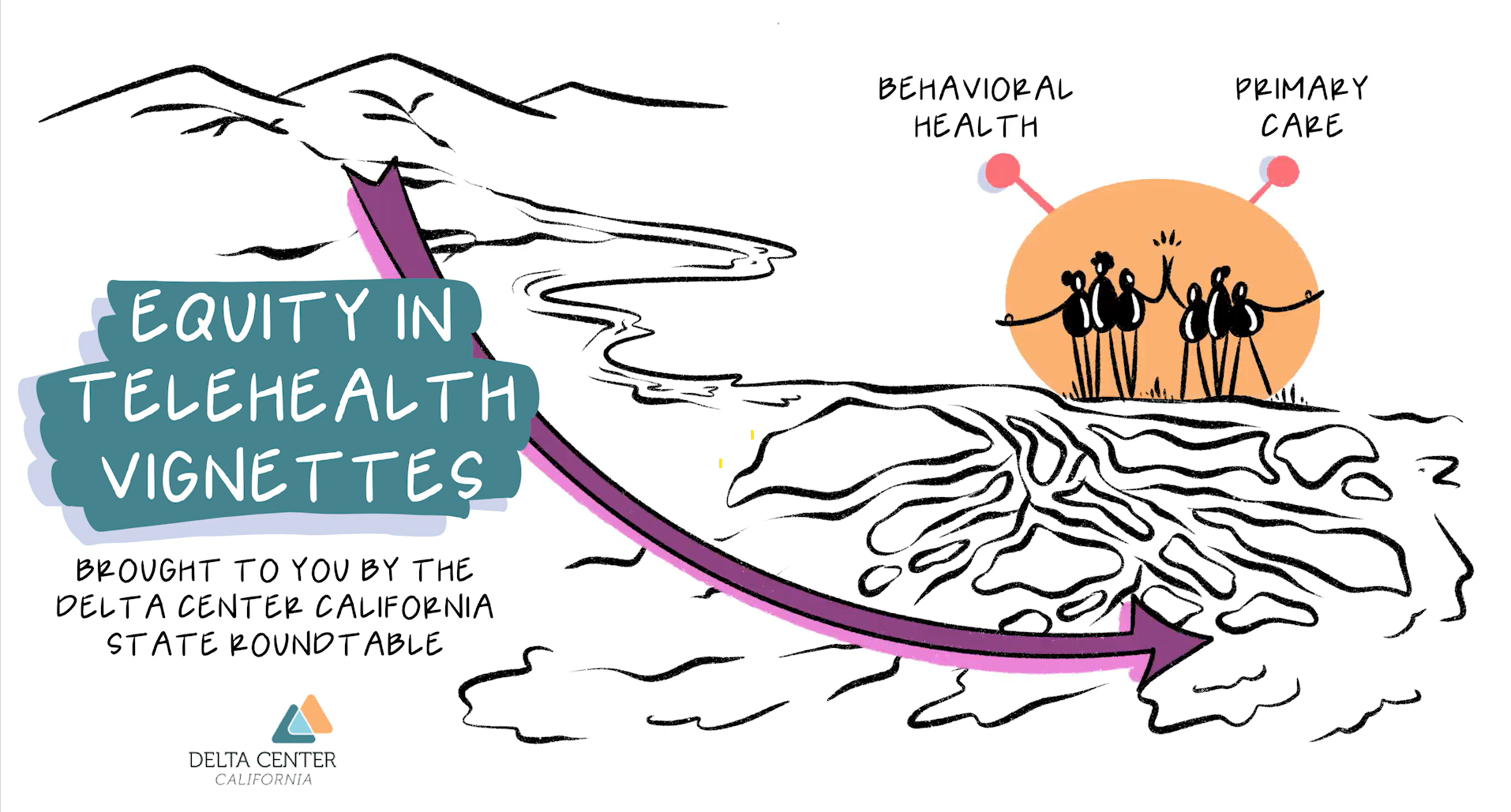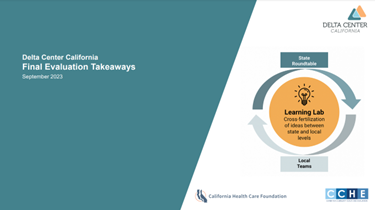Delta Center California Final Evaluation Takeaways
DCC websiteBuilding Collaboration: Insights from the Delta Center California Initiative Evaluation

The Center for Community Health and Evaluation has released the findings of an independent evaluation of the Delta Center California (DCC) initiative. DCC was a 2.5-year initiative supported by the California Health Care Foundation and the Robert Wood Johnson Foundation that brought together behavioral health and primary care leaders to accelerate care improvement and integration through policy and practice change. While goals were originally established for DCC, participants provided much of the direction via a robust co-design process.
Program Overview
Delta Center California (DCC) brought together state associations, policy organizations, primary care and behavioral health providers, and community-based organizations to 1) accelerate primary care/behavioral health integration; 2) advance racial equity and center the lived experience of patients and families; and 3) advocate for a strong, coordinated, and sustainable safety net system for all Californians. By bringing together local teams and state-level policy experts (the State Roundtable), DCC sought to advance practice-informed policies and support local providers on the ground to navigate the California health policy environment successfully. The initiative was led by JSI Research & Training Institute (JSI). It launched in the summer of 2020 and formally concluded in March of 2023.
DCC Evaluation
The Center for Community Health and Evaluation (CCHE) served as the independent learning and evaluation partner for DCC. CCHE’s evaluation used a mixed-methods approach that emphasized equitable evaluation. Participants thought the initiative was worthwhile and could cite the benefits of participation at the individual, organizational, and field levels.
Key Findings
- DCC offered a unique opportunity to build collaboration between primary care and behavioral health organizations at both the state and local levels, which is the foundation for policy and practice change.
- Participants collaborated on policy and practice, although sometimes in ways that were different from originally anticipated. In large part, this was a result of the co-design process, which informed a significant “pivot” in the initiative’s focus as it evolved.
- DCC's strengths, which emerged during the initiative, included centering people with lived experience and advancing racial equity. This offered significant learning experiences for participants and demonstrated the importance of understanding participant priorities when designing initiatives.
- DCC's responsive structure and intensive, effective support were key to the initiative’s success.
Learnings for the Field
- Flexibility, support, and responsiveness are key facilitators in a co-design approach. Be prepared to seize opportunities and address challenges.
- Efforts to build brand-new collaborations take time, intentional focus, and a neutral convener. Consider the quantity vs. quality of collaboration goals in one initiative.
- Intentionally address the implications of focusing on lived experience and racial equity for the initiative structure and process. Consider how it will impact the original goal and membership.
- The impact of unanticipated public health emergencies/crises cannot be overstated. They require ongoing adaptation of program design and expectations placed on participants.
Read the final evaluation report to learn more. More information on the initiative, resources and projects from the local teams and State Roundtable can be found on the DCC website.
